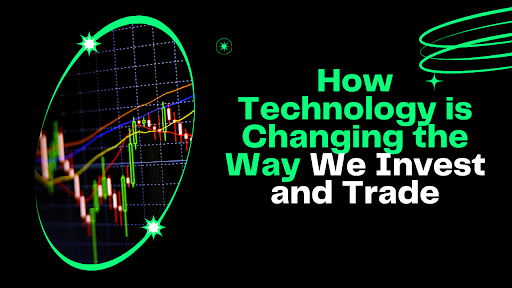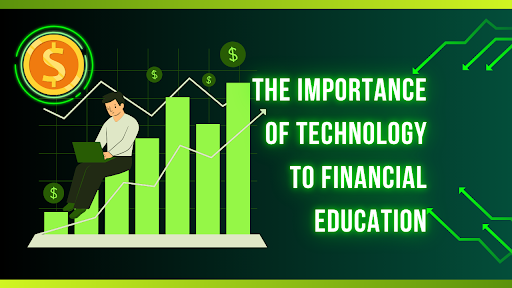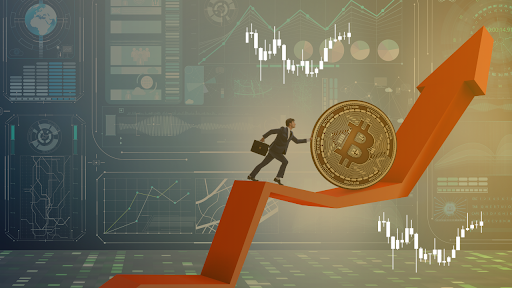How Technology is Changing the Way We Invest and Trade

Financial markets are now more accessible, efficient, and data-driven than ever thanks to technology. Innovations like AI and blockchain are changing the approach of individuals and institutions towards investments. All modern day, traders rely on tools used to analyze massive datasets, execute trades in milliseconds, and even predict market trends. Human expertise is no longer the only means of trading.
From Human Trading to Algorithmic Trading
During modern trading one of the greatest changes is the growth of algorithmic trading. Traders used to first analyze charts, economic indicators, and news events before placing a trade to maximize their profits. Now, without the help of any human, sophisticated algorithms are now able to perform these tasks at lightning speed, reducing inefficiencies and maximizing profitability.
Algorithmic trading was first utilized by institutional investors and hedge funds. However, retail traders also have access to AI-powered trading bots that automate strategies such as analyzing price patterns, historical data, and technical indicators to execute trades. These strategies are free from emotional interference. High-frequency trading has caused sudden volatility, which has significantly increased market efficiency and liquidity.
The Importance of Technology to Financial Education

Technological developments have made it easier for beginners to learn trading free, making investing education more accessible than ever. Investors looking to expand their portfolio used to have to take expensive classes or seek professional help. These days, online materials, simulation sites, and AI educational resources are available to everyone, and they understand a lot.
Key Technological Advancements in Trading
| Technology | Impact on Trading |
| Algorithmic Trading | Enables high-speed, automated trades based on predefined strategies. |
| AI and Machine Learning | Helps analyze market patterns, improve predictions, and reduce risks. |
| Blockchain & DeFi | Decentralizes financial markets, offering transparency and lower transaction costs. |
| Big Data Analytics | Enhances decision-making by processing vast amounts of market data in real-time. |
| Mobile Trading Apps | Provides instant access to global markets with minimal barriers to entry. |
AI in the Trading Market
Now, traders and investors make decisions based on the data they get from using modern technology. Learning algorithms are able to work with enormous amounts of data, spot conditions, and make decisions on price shifts. Even though none of the AI frameworks gives 100% success assurance, they all tend to make decisions that need not rely on human feelings.
For instance, hedge funds have begun to take advantage of AI sentiment analysis to monitor and interpret market sentiments by studying news, social media, and financial documents. This helps them reason what the sentiment is and helps them predict market direction.
The Growth of Blockchain and Decentralized Finance
Blockchain is to many cultures around the world a digital tech that is capable of disrupting or advancing any industry, and the finance sector is no different. Stock exchanges, banks, and brokerage firms have always served as the main pillars of any financial transaction. Trading can now happen directly between buyers and sellers using DeFi platforms created with blockchain.
Benefits of Blockchain for Trading
- Transparency: The ability to record transactions on a publicly distributed ledger means it can never be changed.
- Security: The implementation of blockchain technology protects against fraud and hacking as the data is stored using cryptographic techniques.
- Lower Costs: With no third-party players to handle transactions, the fees for sending and receiving payments are greatly reduced.
- 24/7 Trading: With no restrictions as seen in traditional stock markets, blockchain trading is open at all times.
Many traders and investors in crypto have begun using the platform of DeFi, which allows borrowers, lenders, and even asset stakers to operate without the use of a bank. This is an advancement that has the potential to change the entire notion of currency in the next few years.
Mobile Trading and the Democratization of Investing
The launch of commission-free mobile trading applications has opened up stiff financial markets to a wide array of people. Before this, retail investors were bound by high fees and intricate trading platforms. Currently, everyone who owns a smartphone can easily trade stocks, forex, and cryptocurrencies affordably.
This change has resulted in a drastic increase in retail trading activity, where the number of people engaged in financial markets is at an unprecedented high. It also brings issues of beginner traders severely lacking in market knowledge, which puts them at great risk.

The Future of Trading and Investing
Technology will continue to drive the evolution of trading in several key ways:
- AI-Driven Portfolio Management: Robo-advisors will provide personalized investment strategies based on real-time market data.
- Decentralized Exchanges (DEXs): More investors will adopt peer-to-peer trading platforms powered by blockchain.
- Quantum Computing in Finance: Advanced computing power will enhance market predictions and risk analysis.
- Regulatory Challenges: Governments will introduce new regulations to manage AI trading and decentralized markets.
With advancements in technology, traders and investors need to keep themselves updated with new tools that help to boost productivity and profitability. Even though opportunities are increasing, so are the risks stemming from volatile market dynamics and shifting regulations. As such, any stakeholder aiming toward successful investment in the future must heed these technology changes.

Source: How Technology is Changing the Way We Invest and Trade

